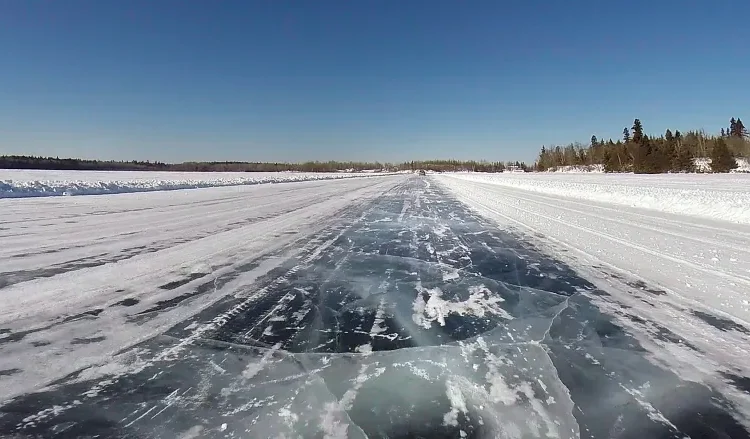Lise Vaugeois says pressure on truckers, training issues contributing to problem
A northwestern Ontario MPP is calling on the province to take a close look at some truck driving schools in Ontario, and how they operate, in an effort to increase safety on the region’s highways.
NDP MPP Lise Vaugeois (Thunder Bay-Superior North) raised the issue on Tuesday during question period at the Ontario Legislature, and again in a media conference Wednesday.
“In northwestern Ontario, we experienced another dreadful weekend of carnage on our highways,” Vaugeois said. “Two houses were taken out by a transport truck in Beardmore. Tragically, another snowplow driver was killed near Ignace. Highway 17 was closed for a second 12-hour period because two transports crashed into each other, scattering debris all over the highway and killing one of the drivers.”
In response, Transportation Minister Caroline Mulroney said the province has some of the most rigourous licencing requirements in Canada and the government is continually reviewing best practices.
Vaugeois spoke about the matter again on Wednesday, holding a news conference from Toronto, and then a follow-up interview with CBC News.
“There are inconsistencies with the training of and licensing of truck drivers,” she told CBC News. “The majority of truck drivers are well-trained and drive well in the conditions, but unfortunately there are also companies, probably the ones with their own schools attached to them, and they are not giving drivers the preparation that they need.”
“The Auditor General did a report in 2019, and then reviewed it again quite recently, and the reality is that the pass rate for the carriers that have their own schools is 95 per cent compared to 69 per cent at Drive Test centres.”
Vaugeois said she believed it was a conflict of interest for a trucking company to run its own driver training school.
“I do think [the provincial government needs] to be looking very seriously at the schools,” she said.
Another issue, Vaugeois said, is the pressure put on drivers by some companies.
“They’ve been told they can’t stop unless the roads are actually closed,” she said. “And unfortunately then they are often the reason that the roads are closed, because of the accidents.
“They don’t get their full pay unless they beat the clock. Now, that’s not true for every company, but there’s a significant number of drivers who are working under that kind of pressure.”
The Wednesday news conference also included Truckers for Safer Highways co-founder Travis McDougall, who said the lack of availability of truck weigh stations is also an issue.
“This is not just Ontario, but I went all the way to the coast of B.C., and the only scale that I crossed that was open in between our yard in Barrie, Ontario, and Richmond, B.C. … was Hope, B.C.”
“Every other one was closed,” McDougall said. “That’s many scales across Western Canada and and even more across Ontario. They’re all closed. You’re missing a lot of ability to monitor drivers and them doing their job.”
McDougall said employees at the stations can perform a number of duties, including weighing the truck, checking paperwork, and performing mechanical inspections.
And while truckers now have electronic logs that monitor the hours a truck driver has been on the road; federal rules prohibit drivers from being on the road more than 13 hours a day.



